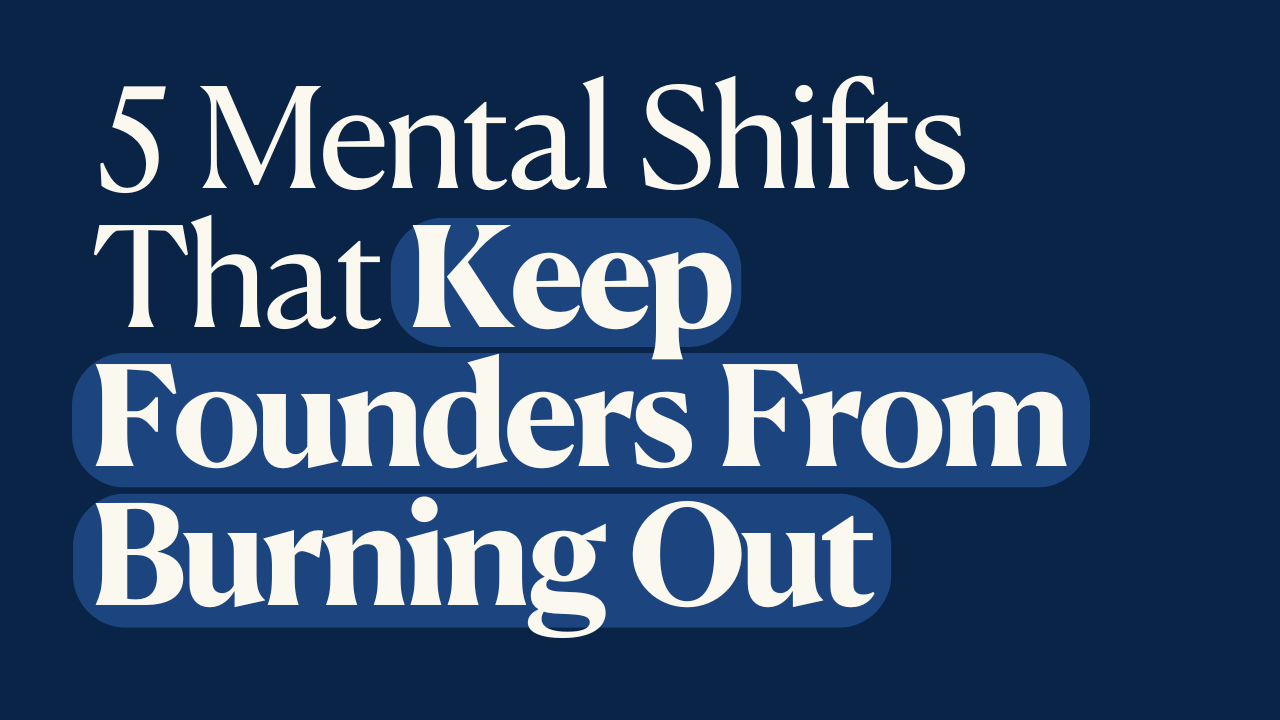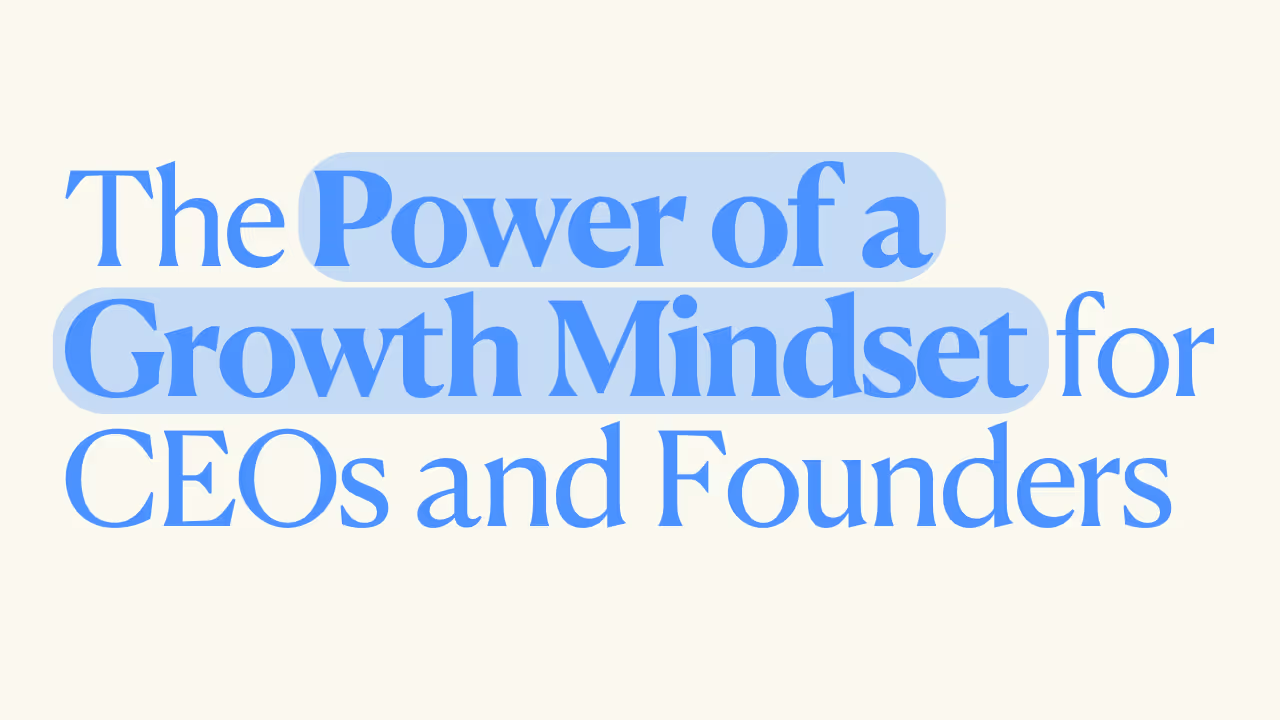5 Mental Shifts That Keep Founders From Burning Out
There’s a lie that many founders quietly buy into: that mental well-being is a luxury, something you deal with when there’s time, money, or space to spare.
Let me tell you what I’ve learned (both from coaching and from flat-out collapsing in 2019):
Mental well-being is not a bonus. It’s the engine.
When it breaks, everything else does too — your product, your team, your clarity, your sense of self.
So here’s what I tell founders who come to me running on fumes:
You don’t need a self-care checklist. You need to reframe how you think about your mind.
Here are five shifts that can make all the difference.
- Your mind deserves the same care as your metrics.
If you wouldn’t run your company without checking the dashboard, why would you run your life without checking your mind?
Mental well-being isn’t binary — it fluctuates. Some weeks are high-output, others are low-morale.
Check in with yourself like you check your retention rates: often, honestly, and without shame.
Build rituals of reflection. Ask:
What’s fueling me this week?
What’s draining me?
Am I reacting or responding?
Your brain is your biggest asset. Treat it like one.
- Stress isn’t a badge. It’s a signal.
Somewhere along the way, hustle culture taught us that stress equals importance.
That the more exhausted we are, the more serious we must be.
But stress isn’t a badge. It’s your system saying: “Something’s off.”
The key isn’t to push through — it’s to listen. And then adjust.
Every founder I’ve coached through burnout has had one thing in common:
They ignored the early signs because they thought pain meant progress.
Spoiler: It doesn’t.
- Mental habits are leadership habits.
Want to make better decisions?
Have healthier co-founder dynamics?
Hold stronger boundaries with your team?
Start by looking at your internal habits. Things like:
How you talk to yourself after you miss a goal.
Whether you let silence do the work in hard conversations.
How much mental space you give to “what ifs” vs “what now.”
You lead from the state you’re in.
Change the state, and your leadership changes too.
- Recovery is a strategic advantage.
Think about your best ideas.
Did they come while you were in a sprint? Or on a walk, in the shower, on a weekend without meetings?
Founders love to say they’re always thinking.
But creativity — real clarity — comes in stillness.
If you build recovery into your week (yes, even if you’re raising), you’re not slowing down.
You’re giving your best work the space it needs to arrive.
Start small:
One walk without a podcast.
One night a week with no screens.
One morning a month to think big, not just urgent.
Watch what happens.
- You don’t have to do it alone.
Most founders I work with don’t need more advice.
They need more space to be real. To say what’s actually happening. To not have to pretend.
A therapist, coach, or just one brutally honest founder-friend can change everything.
Not because they fix you. But because they remind you: you’re not broken.
You’re just human.
And humans aren’t built to do this alone.
Here’s the thing I wish someone had told me earlier:
You can be wildly ambitious and take care of yourself.
You can scale and sleep.
You can win and feel whole doing it.
It starts by seeing your mental well-being not as a cost — but as the strategy that powers all the rest.
And if you’re not sure where to begin, reply to this. I’ve been there. I can help.




